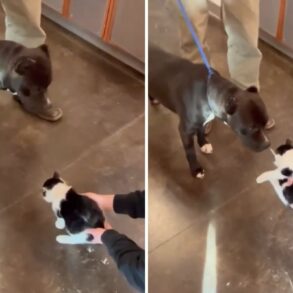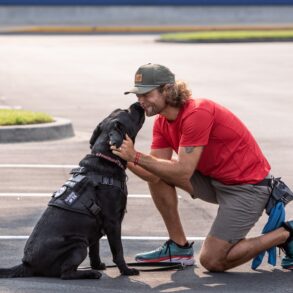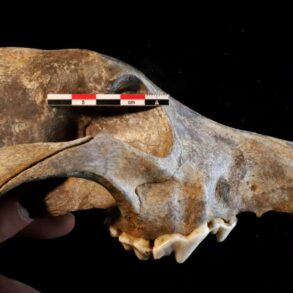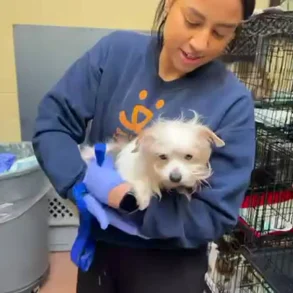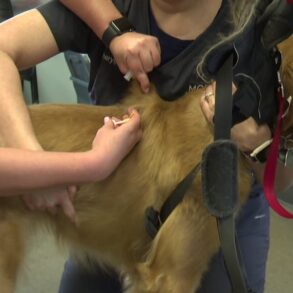
A bill that would prohibit public money from funding lab experimentation on cats and dogs for the benefit of humans is making its way through the Oregon Legislature.
The protect “Fluffy and Fido” bill, as one senator has dubbed it, cruised to passage on the Senate floor with a 24-3 vote last week and is now in the hands of the House. Senate Bill 181 would ban public funding of any experiments on domesticated felines or canines if it doesn’t benefit their species and causes them pain.
The scope of the research to be banned could encompass everything from testing for allergic reactions from cosmetics and household cleaners to gauging the effectiveness of medicines and surgical procedures to cure human ailments.
Supporters of the Senate Bill 181 say they know of only one entity in the state — Oregon Health & Science University — that is currently conducting research on dogs and for the sole benefit of humans. That research, however, is privately funded so it won’t be affected by the bill. The bill’s supporters also say they know of no organizations that are doing such research on cats.
“I’m pleased to say that not a lot of it is going on in Oregon, but it does go on,” said Rep. David Gomberg, a Democrat from Otis and chief backer of the bill, told colleagues during a public hearing earlier this month. “I’m also concerned that as other states begin to prohibit these actions that more of it may come here if we don’t take some proactive action.”
Gomberg said the intent of the bill is to ban only state taxpayer dollars from funding these experiments — not federal dollars, the use of which he said the state can’t control within its borders.
Gomberg said he proposed the bill after meeting with the general counsel from the national animal rights organization, White Coat Waste Project. Jared Goodman, the project’s general counsel and who lives in Tillamook, said just one other state — Virginia in 2018 — has banned all publicly funded cat and dog research after being approached by his group.
Bipartisan state lawmakers there, he said, pushed through the legislation “after we uncovered how state funds were being wasted to inject latex into beagles’ arteries to induce heart attacks without any pain relief,” Goodman said. “And as a result of that bill it ultimately became law the dog experiments were subsequently ended, sparing many animals from that taxpayer-funded abuse.”
Oregon’s bill received a warm reception in the Senate Judiciary Committee, winning over even Sen. Mike McLane, an eastern Oregon Republican, who initially expressed worries that research on cats and dogs might be necessary to save human lives.
McLane said he was “troubled” that the bill might eliminate “research that could be critical for human benefit.” But he added that he doesn’t “celebrate” research that amounts to “nothing but cruelty” toward society’s most beloved animal companions.
Sen. Kim Thatcher, a Republican from Keizer, tried to allay McLane’s worries.
“It just bans testing on dogs and cats,” Thatcher said. “And still allows it under private funding. It just protects Fluffy and Fido.”
OHSU performs research to better understand human afflictions on a range of animals that include primates and prairie voles, the latter of which included intoxicating the gerbil-like rodents to see if they were promiscuous, in an effort to better understand drunken human behavior.
Last month, Oregon Gov. Tina Kotek called for the closure of OHSU’s Oregon National Primate Research Center.
In response to questions from The Oregonian/OregonLive last week, an OHSU spokesperson said the organization hasn’t taken a position on Senate Bill 181.
“But we have concerns about any efforts to restrict research,” Tamara Hargens-Bradley wrote in an email.
She confirmed that OHSU is performing no experiments on cats and one study on dogs, which is privately funded and wouldn’t be affected by the bill. The dog study looks into how an experimental drug and ultrasound technique might reduce the amount of dead tissue after a heart attack in dogs and ultimately humans, Hargens-Bradley said.
“Dogs are the best animal model for this study because their hearts are very similar to human hearts, and other animal models wouldn’t be ideal for this specific study’s protocols,” Hargens-Bradley wrote.
She added that the study is designed so the dogs don’t experience pain. The bill would prohibit research on cats and dogs that causes them pain that requires medication to alleviate or is so severe it can’t be quelled with pharmaceuticals.
Hargens-Bradley said OHSU only uses animals for research when other “non-animal research methods … are scientifically inadequate and/or when experimental designs are too dangerous for human participants.” After a study is deemed to be scientifically valuable, she said two committees totally a few dozen members — including veterinarians, scientists and a community representative — must approve it.
“Nearly all infectious disease research and vaccine development uses animal models,” Hargens-Bradley continued. “Vaccines for HIV, yellow fever, West Nile virus and the development of a universal flu vaccine would not have been possible without animals in research.”
Gomberg, the state representative who is championing the bill, said he has received enormous response in support of it.
“Oregonians don’t want to see their companion animals — dogs and cats — being put through painful experiments on their dime,” he said.
The bill has been referred to the speaker of the House, who is responsible for assigning it to a House committee for review.
— Aimee Green is covering the Oregon Legislature this session. Reach her at 503-294-5119, agreen@oregonian.com or on Bluesky.
Our journalism needs your support. Subscribe today to OregonLive.com.
This post was originally published on this site be sure to check out more of their content.





